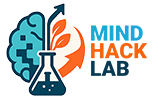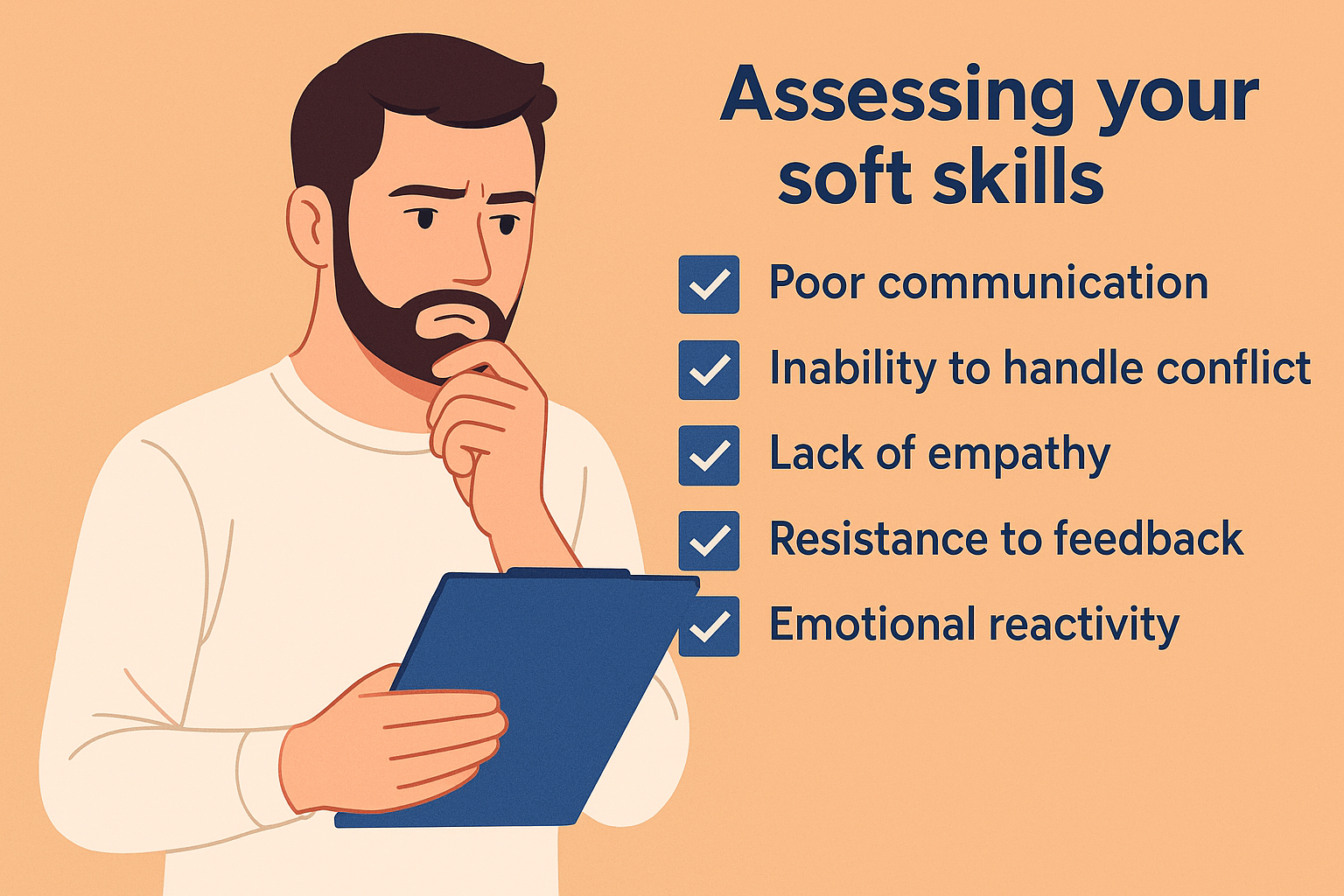Why Soft Skills Matter More Than Ever
The Hidden Superpower: Why Soft Skills Matter More Than Ever
In a world obsessed with technical expertise and hard credentials, there's a quiet revolution happening. The most successful people aren't just those with the best degrees or deepest technical knowledge—they're the ones who've mastered the art of human connection, emotional intelligence, and adaptability. These "soft skills" aren't soft at all. They're the steel framework that holds everything else together.
The New Reality Check
Here's what the research tells us: 85% of job success comes from having well‐developed soft and people skills, and only 15% of job success comes from technical skills and knowledge, according to research from Harvard University, the Carnegie Foundation, and Stanford Research Center (National Soft Skills Association). This finding reveals a truth that's been known for over a century—yet we're still catching up.
Think about your own experience. When was the last time a project failed because someone didn't know the technical details? Now compare that to how many times things went sideways because of:
🔹 Poor communication
🔹 Inability to handle conflict
🔹 Lack of empathy
🔹 Resistance to feedback
🔹 Emotional reactivity
The pattern is clear: soft skills are the real differentiator.
Why Traditional Approaches Fall Short
Despite knowing their importance for decades, U.S. employers spent $171.5 billion on employee learning and development in 2010, and 27.6% of those training dollars went to soft skills training, as reported by the American Society for Training and Development (National Soft Skills Association). This mismatch between what we know matters and where we invest our resources reveals a fundamental problem.
Most soft skill training feels like wearing someone else's shoes—uncomfortable and unnatural. Corporate workshops preach generic scripts. Self-help books offer one-size-fits-all solutions. But real change happens when you understand the psychology behind these skills and practice them in ways that fit your unique personality and challenges.
The convenience paradox comes into play here: meaningful growth requires some friction. Just like building physical strength needs resistance, developing emotional intelligence and communication skills needs intentional practice—but not the overwhelming kind that makes you quit after a week.
The Mind Hack Lab Difference
What if you could develop these crucial skills in just 10-15 minutes, using evidence-based techniques that actually stick? Mind Hack Lab's single-session interventions (SSIs) transform how you approach soft skill development, backed by research showing that 92% of talent professionals regard soft skills as equally as important or even more important than hard skills (Passive Secrets).
1️⃣ Emotional Intelligence on Demand
Instead of vague advice to "be more aware," we guide you through concrete exercises:
- The 3-Second Pause: Before reacting in any charged situation, count to three while naming what you're feeling
- Emotion Mapping: Learn to identify where feelings show up in your body (tight chest = anxiety, clenched jaw = anger)
- The Reframe Protocol: Transform "I'm terrible at this" into "I'm learning this"
2️⃣ Communication That Connects
59 percent of U.S. hiring managers believe it's difficult to find candidates with soft skills, according to a 2015 LinkedIn study (Coursera Blog), with communication topping the list. Move beyond generic tips to research-backed strategies:
- The Mirror Method: Reflect back what you hear before responding ("So what you're saying is...")
- Vulnerability Loops: Share one authentic struggle to build instant rapport
- The Power of 'And': Replace "but" with "and" to keep conversations collaborative
3️⃣ Stress Navigation Tools
Harvard Business Review writer Lou Solomon found that 69% of managers feel uncomfortable communicating with their employees (TRVST), often due to stress. Master these tools:
- The STOP Technique: Stop, Take a breath, Observe, Proceed with intention
- Micro-Recovery: 60-second reset practices you can do anywhere
- Stress Reframing: "This stress means I care about the outcome"
4️⃣ Conflict as Connection
Transform disagreements into opportunities:
- The Curiosity Shift: Ask "Help me understand..." instead of defending
- Find the 10%: Identify what you agree on, even in heated moments
- Future-Self Perspective: "How will I wish I'd handled this in a week?"
Your Personal Soft Skills Lab
The demand is clear: 93% of employers term soft skills as either "very important" or "essential", according to both a 2016 study (TRVST) and Wonderlic research (Coursera Blog). In the UK, 97% of employers say that soft skills are key to business growth or success (TRVST).
Here's how a typical Mind Hack Lab session helps you meet that demand:
Assessment ✅ We start by identifying your specific soft skill challenge. Maybe it's speaking up in meetings, handling criticism, or building deeper relationships.
Education ✅ You learn the neuroscience behind the skill—why your brain defaults to certain patterns and how to rewire them.
Practice ✅ Through guided exercises, you practice the new skill in a low-stakes environment, building confidence for real-world application.
Integration ✅ You create an "if-then" plan: "If I feel defensive in a meeting, then I'll take a breath and ask a clarifying question."
The Compound Effect
Here's the beautiful truth about soft skills: they compound. Better communication leads to stronger relationships. Stronger relationships reduce stress. Less stress improves decision-making. Better decisions build confidence. It's an upward spiral that transforms every area of your life.
Research shows that soft skills were the most sought-after qualities for 91% of management positions, 86% of business operations roles, and 81% of engineering jobs (Passive Secrets). Even in technical fields, these human skills make the difference. The U.S. Department of Labor emphasizes that while the three "R's" are fundamental, employers view "soft" skills as even more important to work readiness (DOL).
📌 Remember: You don't need months of training or expensive courses. Sometimes a single insight, practiced consistently, changes everything.
Start Your Transformation Today
The workplace is evolving rapidly. According to Gartner research, 58% of the workforce needs new skills to get their jobs done (MuchSkills), and soft skills top that list. The World Economic Forum reports that the world will need to reskill more than 1 billion people by 2030 because of technology-led changes in the workplace (MuchSkills).
AI handles more technical tasks. Remote work demands higher emotional intelligence. The future belongs to those who can navigate human complexity with grace and skill. As SHRM notes, employers are increasingly seeking employees with soft skills such as dependability, teamwork/collaboration, problem-solving and flexibility (SHRM).
You already have these capabilities within you. Mind Hack Lab simply helps you unlock them faster, with less friction, and more lasting impact.
🔹 What soft skill would make the biggest difference in your life right now?
🔹 What's been holding you back from developing it?
🔹 What would change if you mastered it?
The journey to becoming a more emotionally intelligent, communicative, and resilient version of yourself starts with a single session. Because sometimes, little treatments create big effects.
Ready to unlock your soft skill superpowers? Mind Hack Lab's evidence-based SSIs are waiting to guide you through personalized, bite-sized transformations that stick. Your future self will thank you.







